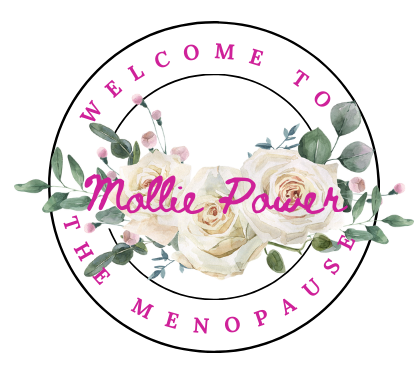
While the term ‘Andropause’ might not be as commonly discussed as its female counterpart, Menopause, it is a phenomenon that can deeply affect a man’s life, particularly in the realm of intimacy and relationships. Andropause, sometimes known as Male Menopause, describes a set of symptoms resulting from a gradual decline in testosterone levels as men age.
During this period, you might experience a range of physical changes that can include fatigue, mood swings, and decreased sexual desire. These shifts have profound implications not only for your sense of self but also for the dynamics with your partner. It is essential to acknowledge that changes in intimacy are not just an individual concern but a shared aspect of a couple’s connection.
One might wonder why it is so crucial to understand Andropause in the context of a relationship. Here is the simple truth: grasping the nuances of this transitional phase enables both partners to navigate its challenges with compassion and empathy. It lays the groundwork for the strategies I will outline next that help maintain and even enhance relationship intimacy.
The journey through Andropause is unique for every man. However, the key to sustaining a healthy intimate life during this time lies in an unconditional acceptance of the transition and the mutual support between partners. It sets the stage for open, heartfelt discussions that will not only alleviate misunderstandings but also cement the bond you share, leading beautifully into the necessity of clear and open communication.
Educating Both Partners to Build Empathy and Patience
When a man is going through Andropause, it benefits both partners to gain an understanding of what is happening. It is not just a phase affecting one party; it influences the fabric of the partnership. By exploring this condition together, you are not just reading about a list of symptoms; you are equipping yourselves with insight that can make every day more manageable and more empathetic for both of you.
Start by finding reputable sources that explain the hormonal shifts and how they might manifest physically and emotionally. Knowing what to expect can reduce fear and uncertainty. Discuss these resources together, and do not hesitate to ask each other what resonates or strikes a chord. Knowledge here is more than power; it is a bridge to deeper compassion for each other’s experiences during this time.
In correcting misunderstandings, you pave the way for a smoother journey. There are many myths surrounding Andropause, and dispelling these can alleviate undue stress. You may discover, for instance, that irritability is not just a mood swing but a reaction to the internal turbulence of hormonal fluctuations. This revelation alone can change a couple’s approach to conflict during this period.
Cultivating patience may well be the cornerstone of this educational process. With both partners informed, empathetic responses come more naturally, and frustrations can be viewed in a different light. If you find yourself on the cusp of impatience, remember this learning curve you are both on, and let empathy guide your reactions.
Professional Support: Enhancing Relationship Fortitude
Sometimes, the issues that spring up during Andropause can be tough to manage alone or solely within the confines of the relationship. Seeking professional support is a sensible step that can provide not just relief, but also a path forward. Talking to a healthcare provider who knows the ins and outs of men’s health can shed light on effective treatments and better ways to handle symptoms.
More than just physical wellbeing, Andropause can throw a spanner in the works of a relationship’s dynamics. Couples therapy or counselling offers a platform to unpack the emotional baggage and find constructive approaches to the challenges at hand. It is common for discussions in therapy to lead to breakthroughs in how partners perceive each other’s experiences and the journey they are sharing.
Professional support combines expertise with an outsider’s perspective, often key in broaching subjects that feel too raw or complicated. It provides a safe space to discuss the most intimate details without judgment or preconceived notions.
Once the stage is set for professional intervention, transitioning into alternative forms of intimacy becomes a natural next step. The insights gained from therapy sessions or healthcare consultations can serve as a foundation for exploring new ways to connect with your partner. It is about moving past limitations and discovering untapped potential in your relationship.
Cultivating Alternative Forms of Intimacy During Andropause

As Andropause introduces changes, many men find the physical aspect of their intimate relationships affected. They might deal with decreased libido or face challenges like erectile dysfunction. But intimacy is not solely about the physical side; it is multi-faceted and emotional at its core. In this period of transition, it is crucial for you and your partner to explore alternative forms of intimacy that emphasise the emotional bond.
It is about reconnecting with your partner in ways that might have been overshadowed by physical intimacy in the past. Imagine activities such as sharing interests or hobbies, initiating deeper conversations, or simply spending quality time with one another. These shared experiences build trust and enhance emotional closeness.
Gestures of affection–holding hands, hugs, or other gentle touches–can carry tremendous meaning and connectivity. They communicate love and care without the need for words. Similarly, prioritising intimate communication through notes, texts, or thoughtful gestures can remind your partner of your affection.
Living through Andropause can indeed strain a couple’s intimacy, but it can also be an opportunity to rejuvenate and redefine the relationship. Embrace this chance to discover new dimensions of closeness you might have never tapped into before.
Next, I will share how prioritising self-care is not just beneficial for your own well-being but is also pivotal in maintaining the health of your relationship. Simple yet impactful lifestyle changes can positively sway the course of your partnership.
Conclusion: Forge a Stronger Bond Through Andropause
Dealing with Andropause—that inevitable, yet puzzling phase often compared to ‘Male Menopause’—can feel like treading on new terrain without a map. It asks for both partners to tread gently, with patience and understanding, as they come to terms with shifting dynamics in their relationship.
Communication is the compass that guides couples through this period. Talking openly about the challenges and changes can clear the mist of confusion, making way for deeper understanding. It is about expressing vulnerabilities and offering a shoulder for support, painting a picture of a partnership that values empathy as much as love.
Education is a cornerstone, dispelling shadows of doubt and uncertainty. With the light of awareness, couples can appreciate the subtleties of this life stage, navigating it with care and consideration. It transforms a potentially isolating experience into an opportunity for joint learning and growth.
Sometimes, seeking support is the most courageous step. Consulting with healthcare professionals is not just about managing symptoms—it is about nurturing the relationship’s health. Therapy or counselling can be the key that unlocks new levels of connection, opening doors where walls may have stood.
Intimacy metamorphoses during Andropause, and it is essential to recognise this. It is a chance to explore a myriad of ways to connect, transcending the physical to discover a renewed sense of closeness. Touching a hand can speak as loudly as words, and a shared smile can sustain the bond.
Crucially, self-care and embracing change together lays the foundation for a thriving relationship. Investing in personal health, managing stress, and nurturing a united front fortify the roots from which love grows. It is about creating an environment where understanding, not Andropause, defines the relationship.
Ultimately, Andropause presents an invitation—an invitation to strengthen ties, to hold hands and face the music together, transforming a challenging interlude into a harmonious composition that plays to the tune of enduring partnership. With commitment and effort, couples can craft a narrative where Andropause enriches, rather than diminishes, the intricate dance of intimacy they share.
